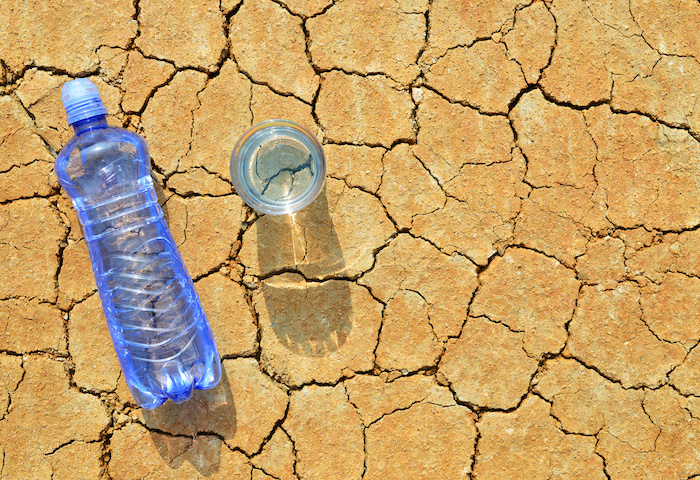What are signs of dehydration?

What is dehydration?
On average, about 60% of a human’s body weight is made of water. Water is essential for the body, in order to function and carry out its daily processes. The National Academy of Medicine recommends a water intake of about 13 to 9 cups daily. Water intake can also come from certain water-rich fruits and vegetables such as lettuce, cucumbers, celery, and melons.
Dehydration is when the body is not getting enough water or fluid to meet its needs. When the body is sick, doing exercises, or enduring extreme temperatures, fluid needs increase even more. Vomiting, diarrhea, bleeding, sweating, burns, and injuries can all lead to fluid loss. Young children and the elderly are most at risk for dehydration because they cannot communicate and have poor thirst mechanisms.

Signs of dehydration
In adults, signs of dehydration appear as:
- Extreme thirst
- Decreased urination
- Dark-colored urine
- Fatigue
- Dizziness and weakness
- Headache and confusion
- Muscle cramps
- Constipation
- High heart rate but low blood pressure
Complications of dehydration
Dehydration can cause serious complications that may be life-threatening or irreversible. These include:
- Heat strokes
- Urinary tract infections, kidney stones, and kidney failure
- Electrolyte imbalances that can lead to seizures
- Low blood blood volume shock
Diagnosis and treatment
Dehydration can be diagnosed through the signs mentioned earlier. It can also be diagnosed through laboratory tests. Blood tests can show electrolyte imbalance or kidney function. Urinalysis can show the concentration and signs of a urinary tract infection
The treatment depends on the level of dehydration. Mild dehydration can be treated at home with more oral fluid intake that contains electrolytes. Symptoms should resolve within a few hours. Moderate or severe dehydration requires medical attention and IV hydration through the vein. IV hydration is also the choice of treatment if oral hydration is not possible. Symptoms should resolve within one or a few days.
Summary:
- Dehydration Definition:
- Body weight is about 60% water.
- National Academy of Medicine recommends 9-13 cups of water daily.
- Water can also come from water-rich fruits and vegetables.
- Signs of Dehydration in Adults:
- Extreme thirst
- Decreased urination
- Dark-colored urine
- Fatigue, dizziness, weakness
- Headache, confusion
- Muscle cramps, constipation
- High heart rate, low blood pressure
- Complications of Dehydration:
- Heat strokes
- Urinary tract infections, kidney stones, kidney failure
- Electrolyte imbalances leading to seizures
- Low blood volume shock
- Diagnosis and Treatment:
- Diagnosis through signs or laboratory tests.
- Blood tests for electrolyte imbalance, kidney function.
- Urinalysis for concentration and signs of urinary tract infection.
- Mild dehydration can be treated at home with oral fluids.
- Moderate or severe dehydration requires medical attention and IV hydration.

This article reviewed by Dr. Jim Liu, MD and Ms. Deb Dooley, APRN.
There’s nothing more important than our good health – that’s our principal capital asset.
#medical #telehealth #umedoc






